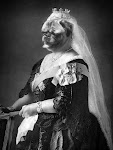August 30-31, 1997 was a weekend. I must have had a boring one, or maybe Jim and I had been to a movie and I was back early. That part is fuzzy. At any rate, I turned on the TV about 5 minutes before the world changing news that there had been an accident in the early morning hours in Paris. Princess Diana had been involved. I sat transfixed.
It was early Sunday AM in Paris, most of Europe was asleep. At around 12:20 a.m. Di and Dodi Fayed her Egyptian boyfriend left the Ritz Hotel (which Dodi's father owned)to head for another Fayed property in Paris. They were passengers in a Mercedes-Benz driven by Henri Paul, the security manager for the Ritz and a bodyguard Trevor Rees-Jones.
The rest is history. Diana was larger than life, an institution herself. She was supposed to be leading the "happy ever after" fairy tale life. It was far from that, Diana died because a drunk driver (Henri Paul, the driver the car she died in)and others involved in the incident made some stupid decision. The "People's Princess" died an all too common death.
Watching the events unfold, I knew this would be an event that would reverberate for a long time. 10 years later is still does.
Being of good solid British background, I understand the British way. Reserved, unemotional and stoic. As a running joke goes:
The English are feeling the pinch in relation to recent terrorist
threats and have raised their security level from "Miffed" to "Peeved."
Soon, though, security levels may be raised yet again to "Irritated" or
even "A Bit Cross." Londoners have not been "A Bit Cross" since the
blitz in 1940 when tea supplies all but ran out. Terrorists have been
re-categorized from "Tiresome" to a "Bloody Nuisance." The last time
the British issued a "Bloody Nuisance" warning level was during the
great fire of 1666.
Diana's death changed that. The whole facade crumbled, a huge catharsis of grief poured out of London, in York and in Woking. Diana had modernized the Royals and catalyzed the modernization of Britain. Her death shocked the Royals and even British society to be a bit more human, a little more worldly. God the Royals looked foolish. Elizabeth's silence, while understandable, was met with disbelief from a distraught public. Her excuses seemed lame. When they did come to London and viewed the floral tributes that nearly covered the palace, they looked bored and cold. I remember seeing Prince Philip pick up a bouquet and then toss it back on the pile. He was booed. Britain, already changing with the election of Tony Blair and his progressive "New Labor", could not believe their monarch was so cold.
But on the day of her funeral, the world watched and I even gasped as the coffin stopped beside the gate of Buckingham Palace. There the Royal family waited to join in the procession. The Queen stood silently, then bowed to the coffin in respect.
Britain quaked.
Friday, August 31, 2007
Subscribe to:
Post Comments (Atom)



1 comment:
Although the current ethos seems to be that everyone should express every feeling, the royal family has always been circumspect in their display of emotions. It seems presumptuous to expect that the public should expect to be privy to their private grief. An open emotional display of the sort people seem to have expected might easily have looked insincere, given their relationship at the time. They were really in a no-win situation.
Post a Comment